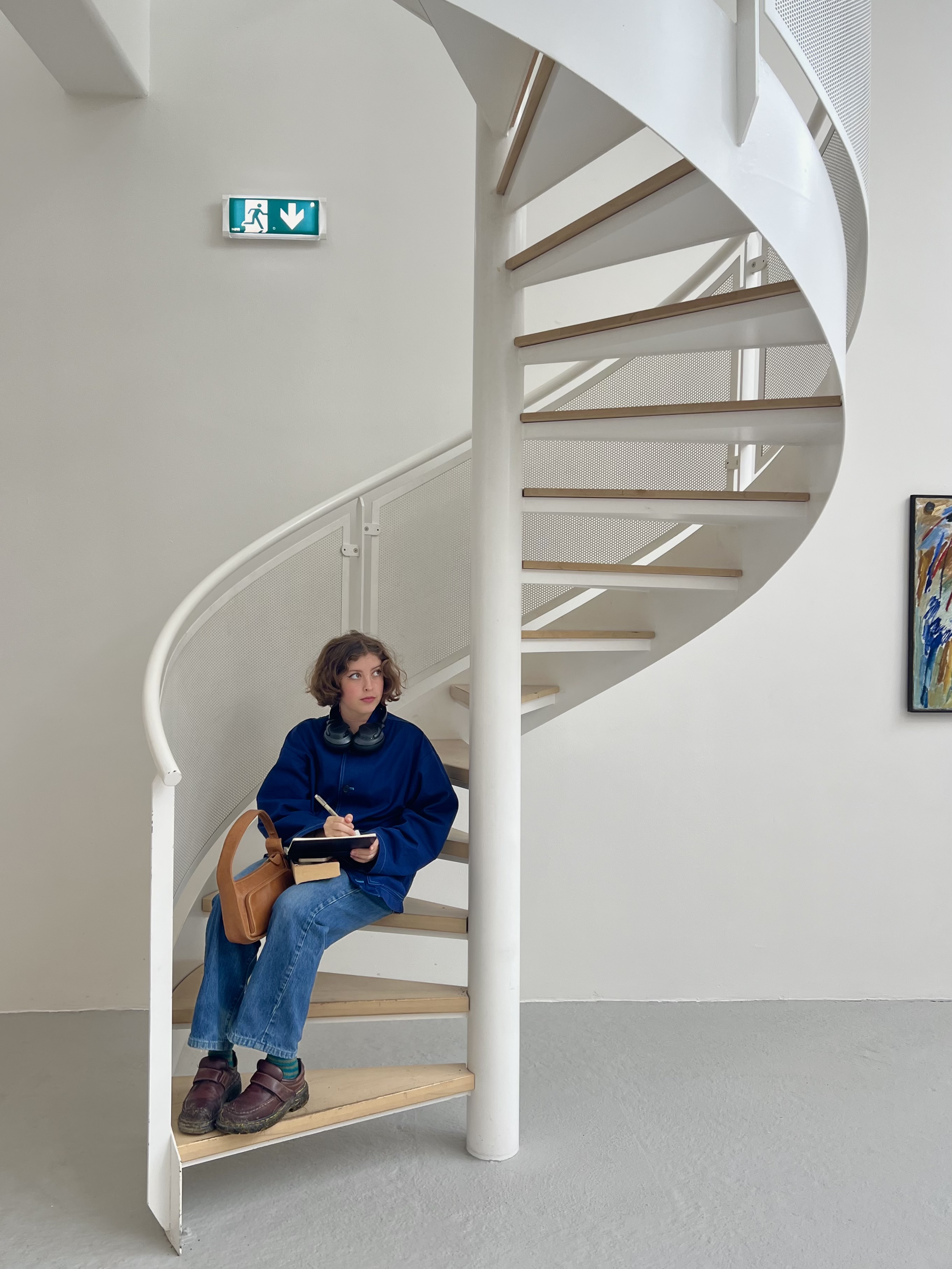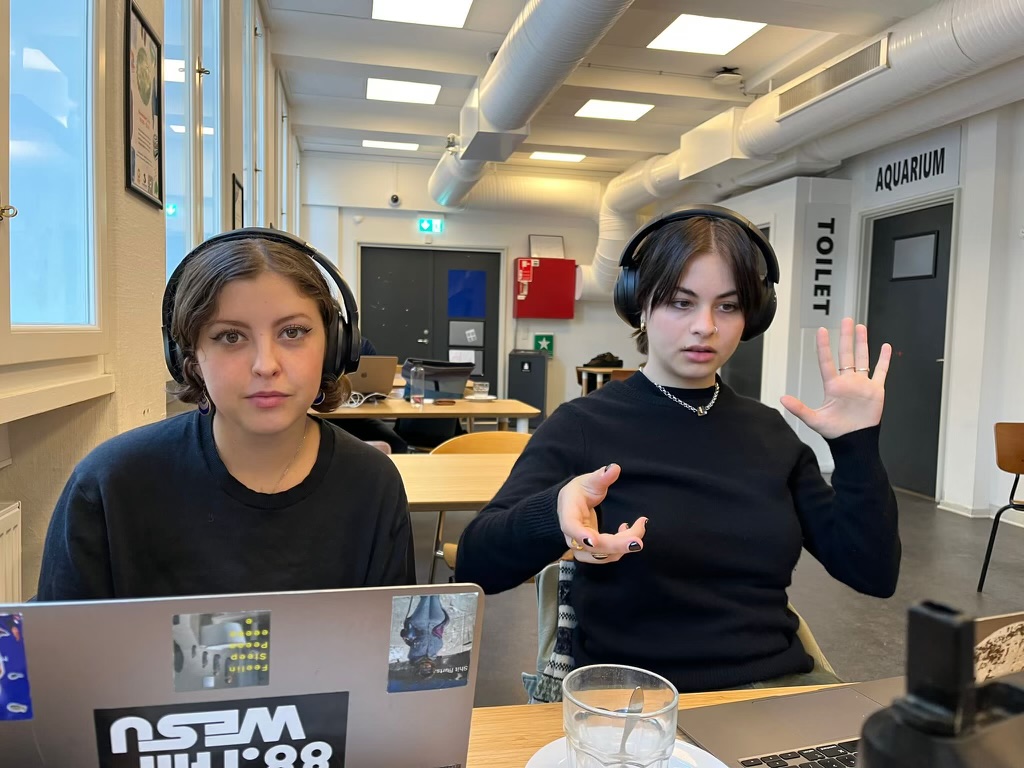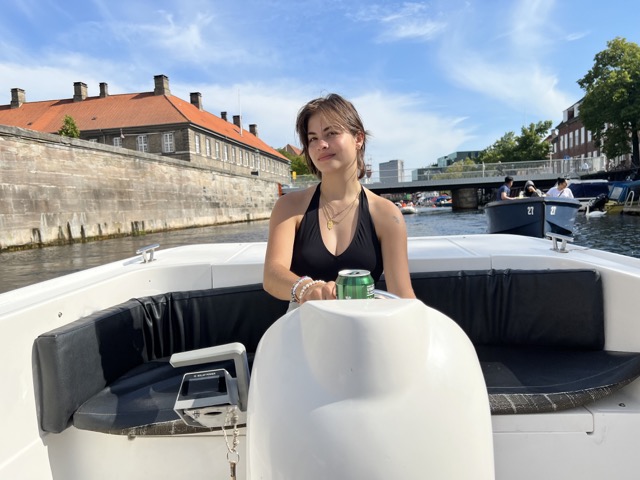Welcome to Argus Overseas, a column brought to you by the Features Section. In this column, we chat with students who have spent time abroad to highlight student experiences with studying outside the University.

Have you ever wondered whether danishes are actually Danish? Well, we can’t answer that question, because we are not the Food section. However, we do know something about Denmark. Or, rather, Sylvia Maxwell ’25 and Izzy Koz ’25 do. This week, The Argus returns with a look into life aboard through the experiences of Maxwell and Koz. Read ahead to find yourself transported to the coastal strip that bridges the North and Baltic seas.
Application
Koz and Maxwell are currently studying abroad in Copenhagen at the Danish Institute for Study Abroad (DIS), an independent foundation that provides programs in English for university students seeking to venture overseas. Since DIS does not have a language requirement, the application process is relatively straightforward. It is a great and common option, especially for those who may not have time to fill out a long application.
“You just had to say why you wanted to study there, you put in your transcript, and that was basically it,” Maxwell said.
Koz shared a similar sentiment, explaining that the application process was very manageable.
“I think you answer some really straightforward questions and then write a mini essay and that’s pretty much it,” Koz said. “You figure out if you got in or not probably a couple months later.”
Pre-Departure
With no particular expectations in mind, both students were drawn to DIS because the program offers a large variety of courses, catering to most academic routes. With a diverse range of classes, DIS offers over 240 elective courses across 70 different disciplines.
“They offer a lot of classes that are relevant to my major, more STEM classes,” Maxwell said. “I [had] also heard a lot of great things about the city and it didn’t have a language requirement so it made the most sense.”
Koz noted that the city itself has an academic appeal.
“My stepdad was working for a non-profit here last summer, and I got the opportunity to come along with him for a week or so, and I was extremely enamored by the city,” Koz said. “I felt like it was an amazing place to study architecture in particular because it has a wide range of older architecture and also some contemporary buildings with an emphasis on sustainability.”
Although both Maxwell and Koz had some prior knowledge of the city, pre-departure preparation required them to remain open to immersion in an unfamiliar culture.
“I kept an open mind, in preparation for the experience, and didn’t go in with any expectations of what it was going to be,” Koz said.
Academics
For most, the classes at DIS seem less rigorous than those at the University, giving students more time to learn from experiences outside of school, which is a huge part of the study abroad experience.
“It’s been very different, not spending hours in the library every day,” Maxwell said.
However, there is still a lot to be gained from the courses at DIS. In her psychopharmacology core course, Maxwell was able to learn from a Danish professor through his professional research as well as personal experiences.
“I find that the teachers [in DIS] are a lot more personal, which is really interesting,” Maxwell said. “For example, [in] my core course [for] psychopharmacology, [my] professor for that class does work in a lab that studies different antidepressants, and he also has a lot of personal experience [since] he takes ADHD medication, a type of amphetamine. He’s very vocal about how that affects him, and his journey to getting treatment. He also is very interested in MDMA and has talked about both his experiences with it, as well as psilocybin, and research around it.”
Maxwell also gained valuable knowledge about the differences between the European and U.S perspectives in her class on conspiracy theories and historical controversies.
“It’s interesting hearing European perspectives on things that have happened in the U.S. because a lot of them I find myself aligning with, but a lot of them I find are a little out of touch,” Maxwell said. “Especially learning in a country that prides itself on being almost like a utopia with a welfare state and free health care, everyone here is just supposed to be very happy, although, as I’ve learned in other classes, this is not the case.”
Koz specified that some courses can be challenging, especially when it comes to finding a healthy work-life balance in a new and foreign city.
“Architecture in my core course was really difficult from the start,” Koz said. “My first impression was that it was going to be really fun and not too difficult and that I’d have a lot of time to explore and meet new people. I’ve had a lot of work for architecture and it’s been challenging to get all that done and still feel like I’m living a balanced life here.”
However, this rigor is often nicely compensated for with regular and necessary time-off.
“I’m surprised by how many breaks we [have and] how the semester doesn’t feel like consistent school,” Koz said. “We have had three solid weeks where we just have not had school.”
Daily Life
Even though academics and a new school environment can feel overwhelming, both students swiftly found comfort and regularity in their daily lives after their arrival.
“I would say in many ways, my expectations were exceeded [with] just my lifestyle here,” Maxwell said. “I really, really enjoy it. I think I didn’t realize that I would be biking everywhere because personally, I’m very nervous to bike in New York. And I’ve been swimming a lot. I definitely have to get up a little earlier than I would at Wesleyan for classes. But honestly, I’ve come to really enjoy the bike ride in the morning and after my classes. So I’m definitely going to miss that aspect of my routine when I come back to Wesleyan.”
The day is filled with classes for most, which are composed of core courses and other electives selected by the students.
“I go to my first class, which is Danish, and I have that for a little over an hour, and then I have to go straight to my second class, which is a garden art class where we’re studying the history of gardens for my art history credit, and then I have a couple hours break between that and my 2:50 class, which is Nordic Noir—a film class,” Koz said.
In her free time between classes, Maxwell indulges in everything that the city has to offer, making the most of the free time that she has.

“There’s just less work than I had at Wesleyan, which is really nice because then it gives me more time to just explore the city and go to different events at different restaurants or museums,” Maxwell said. “Because we have our [study tour days on] Wednesdays, you take a field trip with one of your classes.”
As the day comes to an end, the students wind down in the comfort of their kitchens and residences.
“I’ll probably go back home to my apartment, drop off my stuff, go make dinner with friends at a different collegium, and watch a movie with friends or do homework,” Koz said “So, it’s pretty chill.”
Similarly, Maxwell shares the appreciation for the easy-going and comforting lifestyle that Copenhagen fosters.
“My favorite part is just how easy it feels to live here,” Maxwell said. “With that being said, I am in a program where I’m given housing and a small food accommodation, but also a transportation card, so I do recognize that I have a lot of things that make life easy here. But I think just in general, there’s not a lot of chaos here at all.”
Koz agreed that Copenhagen has truly become a home away from home, allowing her to enjoy and learn more about the city.
“I’ve been surprised by how much time I’ve actually spent in Copenhagen itself rather than traveling,” Koz said. “[You often] look at Instagram photos of people who’ve gone abroad and it looks like they’re doing things every single moment. But then you realize that you actually just get the opportunity to develop a lifestyle here rather than indulge in tourism.”
When it comes to socializing, the students find many ways to keep themselves entertained.
“Tuesdays are kind of like Saturdays in that sense, because people go out on Tuesdays,” Maxwell said. “I’ve really been enjoying going to trivia night, which is in English at this bar. There’s a bar that has a lot of board games.”
Maxwell highlighted that studying abroad in Copenhagen allowed her to bond with Wesleyan’s community even more, speaking to the ubiquitous support that characterizes the University’s student body, whether on campus or abroad.
“I think one major thing that I have loved is just to have the opportunity to become closer with people that I knew at Wesleyan, but was never put in a situation where I became really close with them,” Maxwell said. “I do think there is definitely a strong Wesleyan community here. We’re very lucky to go to a school where I feel like you could talk to anyone and end up really liking them as a person.”
Culture Shock
Like other Scandinavian countries, Denmark prides itself on having a strong welfare state. Known for its free healthcare and extensive social security systems, the country has the reputation of resembling a utopian reality.
“It’s crazy living in a country that’s a big welfare state, which is very different [from the United States],” Koz said. “It’s gonna be weird to come back and remember that you’re not really as protected as you are here [when you] fail. For instance if you fail in the U.S., you’re pretty much on your own, whereas if you fail here, you have a social [safety net].”
However, the stability and comfort that the Danish state provides comes with certain dynamics that foster a culture of turning a blind eye to certain problems.
“Because people strive for a very community-driven, happiness-driven environment, it causes people to be less apt to call others out on their prejudices,” Maxwell said. “I find that really interesting because I’ve seen people with attitudes that definitely have underlying racist tones, sexist tones, and homophobic tones, but no one wants to step on each other’s toes and everyone just wants to feel this kind of communal happiness. People in Denmark generally agree with their government and everyone kind of feels an agreement on big happenings. But it also means that any sort of form of activism is automatically pretty dampened.”
In a similar way, Koz echoed these sentiments, highlighting the homogeneity that characterizes Copenhagen’s public.
“[A big culture shock was] not having much diversity,” Koz said. “I live in LA, and it’s a fairly diverse landscape. There’s a lot of people from a lot of different backgrounds who are living in LA and here, it’s a pretty homogenous state.”
Despite these stark contrasts to their home cities, the students expressed that there are still opportunities to engage with unique aspects of the Danish community.
“There is this place called Absalon, which is a community center, and they have massive family dinners every night,” Maxwell said. “They’re fairly inexpensive, but you sit among complete strangers and you’re very much encouraged to interact with them, so that has been one really amazing experience. I’ve gone to two of the dinners and then one of the breakfasts and you really do meet the people around you. I met such interesting people. One of them was from the U.S. and now she’s working for a consulting company here. It’s funny because she’s from South Carolina, but’s been here for two years and I can already hear her Danish accent.”
Reflections and Advice
When it comes to advice, Maxwell and Koz did not shy away from offering prospective students a handful of helpful suggestions. Specifically, they encourage students to think strategically about their opportunity to engage with new experiences in foreign places.
“Don’t think as much about academics, because in general, most classes aren’t really accepted as credits for your major,” Maxwell said. “[For example,] choose your core course very wisely because depending on your core course, it’ll determine where you go on your study trips. I just went on one to Frankfurt in Germany and Heidelberg and [it] was very beautiful and I really enjoyed it. So, definitely look at where the class is going to study. I knew one class that went to London and other places in England and went and saw Hamilton.”
As for practical tips, Maxwell and Koz offered insider scoops that they have gathered from their firsthand experiences.

“Rent a bike through swapfiets and use your meal money wisely because it runs out really fast,” Koz said. “Make a budgeting sheet before you come here because it can get really expensive really quickly. You’ll be like, ‘Oh, it’s just a cappuccino,’ but if you do that too much, then you’re not going to be budgeting your time or money well. Bring a backpack that’s big enough to take on a plane, because if you want to travel cheaply, you can only have one bag that’s kind of small.”
After all, your study abroad will be exactly what you make of it. The first step is keeping an open and curious mind, and the second is not neglecting your bike, obviously.
“I think [one] of the best ways to feel closer to Danish culture in general has been biking just because I feel like I got so much out of micro interactions with people while I [was] biking, and you really see the city through everyone living there because that’s how most of them get to work and get places,” Maxwell said.
Eugenia Shakhnovskaya eshakhnovska@wesleyan.edu.
Lily Ahluwalia can be reached atlahluwalia@wesleyan.edu.


Leave a Reply